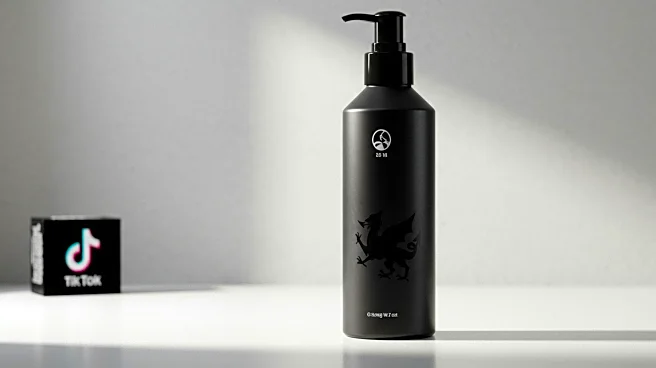What's Happening?
Lucie MaCleod, the founder of Hair Syrup, has decided to remove her haircare products from TikTok Shop after discovering counterfeit versions being sold on the platform. MaCleod, who appeared on BBC's Dragons Den, reported that her company was generating significant revenue through TikTok Shop, with nearly half of its income coming from the platform last year. However, the emergence of fake products has led to a decline in sales and customer complaints. City of London Trading Standards has expressed serious concerns about the sale of unsafe products on TikTok Shop. Despite efforts to remove counterfeit listings, MaCleod faced challenges with TikTok's processes and customer service, which she described as inadequate. As a result, she has shifted her sales to an alternative cosmetic retailer site.
Why It's Important?
The issue of counterfeit products on TikTok Shop highlights broader concerns about the platform's ability to regulate and ensure the authenticity of goods sold. This situation impacts businesses relying on TikTok Shop for revenue, as counterfeit goods can damage brand reputation and customer trust. The lack of effective customer service and regulatory oversight may deter other businesses from using the platform, potentially affecting TikTok's growth in the e-commerce sector. Consumers may also become wary of purchasing from TikTok Shop, leading to shifts in buying habits towards more traditional and trusted e-retailers.
What's Next?
Lucie MaCleod's decision to move her products to another retailer suggests a potential trend where businesses may seek more secure platforms for their sales. TikTok Shop may need to enhance its verification processes and customer service to retain sellers and buyers. The City of London Trading Standards may continue to investigate and push for stricter regulations on e-commerce platforms to prevent the sale of counterfeit and unsafe products. This could lead to changes in how online marketplaces operate and enforce product authenticity.
Beyond the Headlines
The rise of counterfeit products on platforms like TikTok Shop raises ethical questions about consumer protection and the responsibility of e-commerce sites to ensure product authenticity. It also underscores the challenges faced by small businesses in navigating digital marketplaces and protecting their brand integrity. Long-term, this issue may prompt discussions on the need for more robust digital commerce regulations and the role of technology in safeguarding consumer interests.











